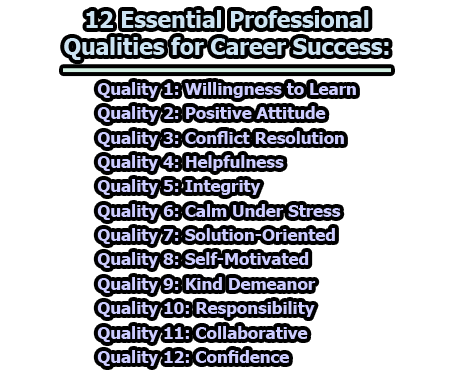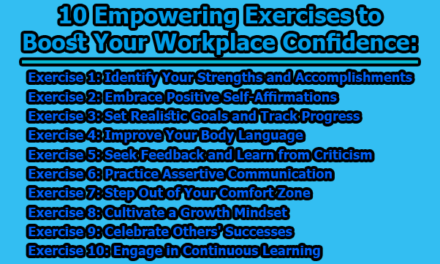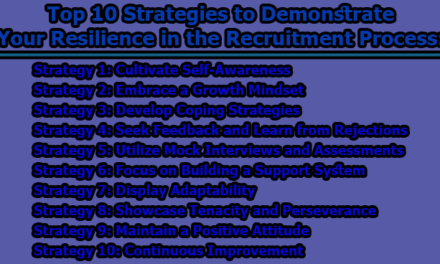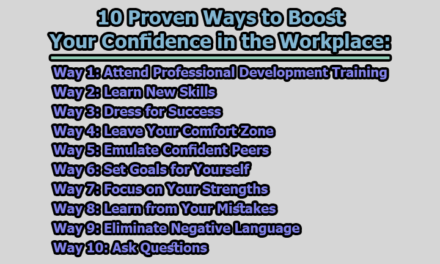12 Essential Professional Qualities for Career Success:
In today’s rapidly evolving and highly competitive professional landscape, possessing a comprehensive set of qualities is paramount to achieving career success. While technical skills and expertise are crucial, it is the blend of behavioral and interpersonal attributes that truly sets professionals apart. In this article, we delve into the 12 essential professional qualities for career success to new heights, enhance your reputation, and leave a lasting impact on your workplace and industry.
Quality 1: Willingness to Learn:
A true professional understands that learning is a continuous process and actively seeks opportunities to acquire new knowledge and skills. They are open-minded, curious, and eager to explore different aspects of their field. They may pursue formal education, attend workshops, participate in webinars, read industry publications, or engage in self-directed learning to stay current with the latest trends and developments. This dedication to learning enables professionals to adapt to evolving market demands and technological advancements, making them invaluable assets to their organizations.
Quality 2: Positive Attitude:
Having a positive attitude is not only crucial for personal well-being but also for fostering a healthy work environment. Professionals with a positive outlook exude enthusiasm, energy, and optimism, which can uplift the entire team and improve overall productivity. They see challenges as opportunities for growth and approach problems with a solutions-oriented mindset. Moreover, their positive demeanor creates a pleasant atmosphere, making them enjoyable to work with and leaving a lasting impression on colleagues and clients alike.
Quality 3: Conflict Resolution:
In any workplace, conflicts are inevitable. A professional handles conflicts with emotional intelligence and effective communication. They actively listen to all parties involved, seeking to understand different perspectives and underlying issues. Instead of escalating conflicts, professionals aim to find common ground and work towards a win-win resolution. They avoid engaging in office gossip, maintain confidentiality, and follow established procedures for conflict resolution, contributing to a harmonious and respectful workplace culture.
Quality 4: Helpfulness:
A hallmark of a true professional is their willingness to lend a helping hand to their colleagues and support the team’s success. They demonstrate a sense of teamwork by volunteering for additional tasks, sharing knowledge, and assisting others when needed. Offering help proactively showcases their commitment to collective goals and fosters a collaborative work environment where everyone feels valued and supported.
Quality 5: Integrity:
Integrity is the foundation of trust in any professional relationship. Professionals adhere to a strong moral compass, consistently acting with honesty, reliability, and ethical behavior. They keep their promises, admit their mistakes, and take responsibility for their actions. Colleagues and superiors trust them with sensitive information and crucial tasks because they know that professionals will always act in the best interest of the organization and its stakeholders.
Quality 6: Calm Under Stress:
The ability to remain calm and composed during stressful situations is a hallmark of true professionalism. Professionals do not allow external pressures to dictate their reactions. Instead, they take a moment to assess the situation, consider potential solutions, and communicate effectively with colleagues and clients. By staying poised under pressure, professionals can make rational decisions and find constructive ways to address challenges without compromising their effectiveness or relationships.
Quality 7: Solution-Oriented:
Beyond identifying problems, professionals are proactive in seeking solutions. They approach challenges with a creative and innovative mindset, exploring different avenues to resolve issues. Rather than just pointing out problems, they contribute actionable suggestions and take the initiative to implement improvements. This problem-solving attitude helps organizations tackle obstacles efficiently and fosters a culture of continuous improvement and innovation.
Quality 8: Self-Motivated:
Self-motivated professionals possess a strong sense of purpose and drive that propels them forward even without constant supervision. They take ownership of their work and career development, setting ambitious goals and pursuing them diligently. Self-motivated individuals exhibit perseverance in the face of challenges, continuously seek opportunities for growth, and maintain focus on achieving their objectives, showcasing their reliability and dedication to their craft.
Quality 9: Kind Demeanor:
Professionals treat their colleagues with kindness, empathy, and respect, fostering a positive and supportive work environment. They actively listen to others, show appreciation for their contributions, and offer encouragement when needed. By maintaining a kind demeanor, professionals build trust and rapport with their peers, creating a collaborative and harmonious workplace culture where everyone feels valued and included.
Quality 10: Responsibility:
Reliability and accountability are key traits of professionals. They fulfill their commitments, meet deadlines, and communicate proactively if unforeseen circumstances may affect their deliverables. Taking responsibility for their actions, whether successes or setbacks, demonstrates their integrity and dedication to maintaining high standards of performance.
Quality 11: Collaborative:
Effective collaboration is vital in today’s team-oriented workplaces. Professionals excel at working harmoniously with diverse personalities and skill sets. They actively participate in team discussions, value others’ input, and encourage open communication. By embracing diverse perspectives, professionals promote creativity and innovation, leading to enhanced problem-solving and successful project outcomes.
Quality 12: Confidence:
Confidence is a fundamental quality that sets professionals apart. They believe in their abilities and present themselves with poise and assertiveness. Professionals are unafraid to take on challenges, volunteer for leadership roles, and share their expertise with others. Their confidence inspires trust and respect from colleagues and clients, positioning them as capable and dependable assets to their organizations.
Finally, the 12 essential professional qualities presented above form a holistic and multifaceted framework for career success. By cultivating a genuine willingness to learn, maintaining a positive attitude, and embodying traits such as integrity, responsibility, and collaboration, professionals can propel their careers to new heights. These qualities not only foster personal growth but also contribute to a positive and productive workplace culture. Ultimately, the combination of these qualities empowers professionals to excel in their roles, gain recognition, and make a lasting impact in their chosen fields.
Frequently Asked Questions [FAQs]:
What are the essential professional qualities for career success?
The essential professional qualities for career success include a willingness to learn, a positive attitude, conflict resolution skills, helpfulness, integrity, the ability to remain calm under stress, a solution-oriented mindset, self-motivation, a kind demeanor, responsibility, collaboration skills, and confidence. These qualities contribute to personal and professional growth, enhance workplace relationships, and make individuals valuable assets to their organizations.
How can I develop a positive attitude in the workplace?
Developing a positive attitude in the workplace involves focusing on the bright side of situations, reframing challenges as opportunities, and practicing gratitude. Engaging in positive self-talk, surrounding yourself with optimistic colleagues, and maintaining a healthy work-life balance can also contribute to a positive outlook.
What is the importance of conflict resolution skills in a professional setting?
Conflict resolution skills are crucial in a professional setting to maintain a harmonious work environment and prevent conflicts from escalating. Effective conflict resolution promotes open communication, encourages collaboration, and helps foster a culture of respect and understanding among team members.
How can I enhance my self-motivation?
To enhance self-motivation, set clear and achievable goals, break tasks into manageable steps, and celebrate your successes along the way. Maintain a positive mindset, stay focused on your long-term vision, and seek inspiration from role models or mentors who motivate you to excel.
Why is integrity important in the workplace?
Integrity is vital in the workplace as it builds trust among colleagues, clients, and superiors. Demonstrating honesty and ethical behavior enhances your credibility, allows you to handle confidential information responsibly, and solidifies your reputation as a reliable and principled professional.
What are some strategies for effective collaboration?
To engage in effective collaboration, actively listen to others, value diverse perspectives, and contribute constructively to discussions. Encourage open communication, delegate tasks based on individual strengths, and be receptive to feedback to ensure a collaborative and high-performing team.
How can I remain calm under pressure?
To remain calm under pressure, practice mindfulness, and deep breathing techniques. Prioritize tasks to avoid feeling overwhelmed, maintain a positive mindset, and remind yourself of past successes in handling challenging situations. Seeking support from colleagues or mentors can also help you navigate stress with composure.
How can I showcase confidence in my professional role?
To showcase confidence, maintain good posture, make eye contact during conversations, and speak assertively and clearly. Take on new challenges and responsibilities, volunteer for public speaking opportunities, and display genuine enthusiasm for your work to project self-assuredness.
What can I do to improve my problem-solving skills?
To improve problem-solving skills, develop a systematic approach to analyze problems and identify potential solutions. Seek feedback from colleagues or mentors to gain different perspectives, and continually seek opportunities to learn new problem-solving techniques through workshops or online resources.
How can I cultivate a kind demeanor in the workplace?
Cultivating a kind demeanor involves actively showing empathy and consideration toward others. Practice active listening, offer help when needed, and be respectful and appreciative of your colleagues’ contributions. Simple acts of kindness, such as expressing gratitude or providing encouragement, can create a positive and supportive work culture.

Library Lecturer at Nurul Amin Degree College










